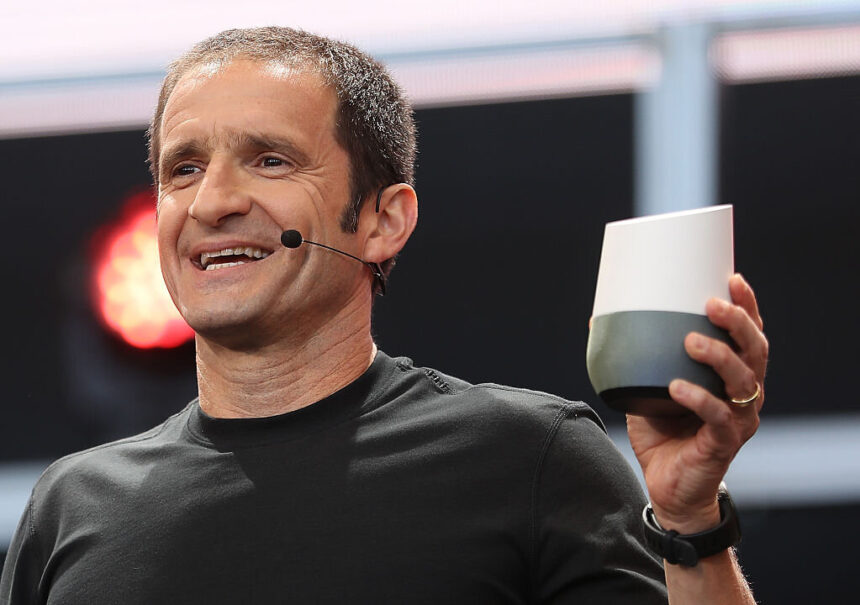Commentary
The original “Jetsons” series from 1962–1963 is not easy to find in syndication. That’s too bad. It was a wonderful show.
The theme of this animated show (“cartoon”) was that in the future the technology would make life much more convenient but all the usual problems would still be there. The kids would still be annoying and expensive but ultimately delightful, the job still arduous even if it is only a few hours a week, the boss would still be officious, people would still get sick, and all the normal dynamics of human life would still be there.
The original Jetsons was the opposite of transhumanism. All that would really change is that everything would be speedier. The cars would fly. We would live in the clouds. We would have a video phone. Robots would do the chores. Teachers would be electronic. We would travel with ease. Buildings would appear much more quickly, and be torn down too.
There would still be cops on the beat, thieves on the loose, lessons to learn at school, and teenage daughters that spend too much money. Hilariously, the little robots flying around always had puffs of smoke coming out of them as if powered by natural gas. You still had to fuel them.
That’s what made the series so delightful. The future promises to be wonderful but not solve all our problems. Human nature itself would still be present, unchanged, and present the usual challenges and dilemmas. The series both ramped up our expectations and dialed them back.
It was oddly realistic. We did (eventually) get video phones, electronic teachers, and work itself would be lessened in physical difficulty and time spent. But that would only leave us with the same old problems of quirky personalities, family instability, problems with coworkers, and capital depreciation (everything was always being repaired).
In that way, the series perfectly captured the culture of a time and its forward vision.
In particular, I had not thought through the implications of such a speedy conversion from analogue to digital and just how fragile that would be. Nor had I considered the surveillance angle much less the way our information would become commodified and sold to governments to oppress us even more. Finally I had not imagined that the corporate leadership of the new digital world would be so compromised by involvement in government.
It struck me that all this new technology represented nothing but liberation. I was wrong about that and had not taken seriously the first lesson of the Jetsons show, namely that all the problems would remain present despite all the technological changes.
In my book, I mention briefly that the series was rebooted twenty years later, in the mid-eighties. It had better production values, and some new characters. The biggest change was that the mood was darker. The gadgets changed from happy and friendly to vaguely burdensome even to the point of being menacing.
The machines started talking back and even pushing back. Humans were less in charge and machines more so. They became a source of oppression rather than a universal force of emancipation. They seemed almost to have volition. In a brilliant anticipation of “artificial intelligence” humans seemed to lose some modicum of control as the machinery became ever more imposing.
I never liked the rebooted series probably because it was suggesting something that I did not want to hear. I did not believe back in 2011 when my book came out that my glorious phone and my wonderful websites would eventually turn on me. But, as it turns out, the reboot of the series was precisely right, as we began to learn some twenty years later.
It’s long past time that we all take a more critical look at the technologies that define our current times. The National Security Administration and the government generally have become major customers of all the main platforms, including Amazon with its acres of servers for sale and Microsoft which sells so much to the state.
That’s just the start of it. Big tech giants have been found to be promoting, without being asked, visions of the world that are contrary to what a majority of Americans favor, as well as engaging in censorship surrounding key elections, showing themselves to be far from neutral.
For making available a relatively censorship-free venue, Elon Musk’s X has been pilloried by lawfare of all sorts, and became a pariah in the tech world simply by showing support for Trump over the censors.
There are ways to push back by simply saying no. I used to love these home appliances made by Google, Amazon and the like until I realized that, of course, they are, in effect, tools of surveillance. Yes, they are always listening, else they could not hear when you call them to attention. Once you think about it, the denials are preposterous.
Because I was such a fan, one company kept sending more appliances to me. I had three in my home in addition to the main one, and started giving them out to friends.
One day, it occurred to me that the company I was dealing with was not as sweet and generous as I had thought. It became clear that their actions were driven by self-interest rather than genuine kindness. Despite my familiarity with their products, I made the decision to unplug and discard them all.
Subsequently, I had to adjust to checking the time manually and controlling music by physically interacting with the devices. Surprisingly, I found this change to be quite enjoyable. I realized that I didn’t miss the surveillance devices at all; in fact, I felt a sense of privacy that had been lacking for years.
I encourage you to try it yourself – I took a hammer to my devices and felt a sense of liberation. By turning off notifications on my phone and opting for traditional products over “smart” ones, I have found greater peace and happiness.
In today’s world filled with technological advancements, it is important to take a step back and consider the implications of our reliance on these devices. We must be vigilant and not allow ourselves to blindly accept the potential dangers posed by technology.
As we navigate this ever-changing landscape, let us remember that we should be in control of the machines, not the other way around. It is crucial to remain mindful and not be swayed by the influence of tech giants who may not have our best interests at heart.
It is essential to be reminded of this from time to time, as we strive to maintain a balance between embracing innovation and safeguarding our personal privacy and freedom.
The author’s views expressed in this article are personal opinions and may not necessarily reflect those of The Epoch Times.
Source link







